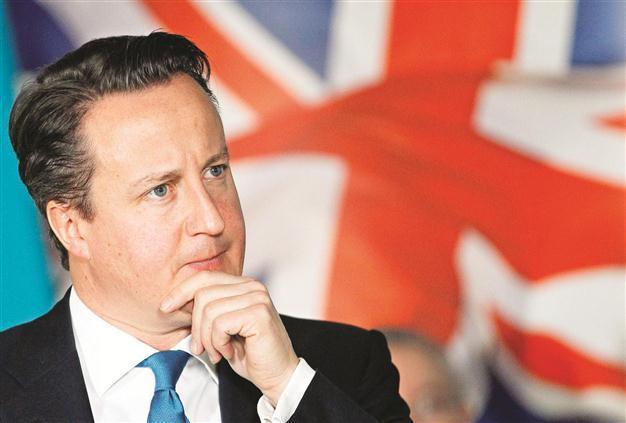UK, Scots spar over vote
LONDON

British Prime Minister David Cameron says he wants the United Kingdom to stay together and warns of serious economic consequences if the majority votes in favor of the Scottish independence referendum. AP photo
The British government discussed proposals Jan. 9 to give Scotland the legal powers to hold a referendum on independence, which could happen within the next 18 months.Prime Minister David Cameron said a referendum should be held soon because the uncertainty about the issue was damaging Scotland’s economy, although he remains strongly opposed to the break-up of the United Kingdom. “I want the United Kingdom to stay together,” Cameron told Sky News. “It is a fantastically successful partnership. I think Scotland and England are better off in the United Kingdom.” Cameron was expected to offer Alex Salmond, leader of the pro-independence Scottish National Party (SNP), the power to hold a legally binding vote on whether Scotland should remain part of the 300-year-old union with England.
Deputy First Minister Nicola Sturgeon of the SNP accused Cameron of “a blatant attempt to interfere” in an issue that should be decided by Scotland and its people. He told BBC radio Jan. 9 that Cameron was meddling in the hope of sinking the country’s bid to split from England.
Economic consequences
The prime minister said ahead of a Cabinet meeting at which the issue was discussed that the uncertainty about the independence issue could have economic consequences. “This is very damaging for Scotland because all the time business is asking, ‘Is Scotland going to be part of the United Kingdom? Are they going to stay together? Should I invest?’” Agence France-Presse quoted Cameron as saying. “And we’re beginning to see companies asking those questions.” Cameron’s official spokesman said the discussion in Cabinet was led by Finance Minister George Osborne, who is in charge of a committee looking into the Scottish referendum issue.
The spokesman said the government would set out its views to Parliament “in coming days” after receiving final legal advice, but added that in the end it would be a matter for the Scottish people. It is believed Cameron’s government will give its backing for a binding referendum but with certain conditions. These include that the referendum be held within 18 months, rather than the 2014 date planned by the SNP, and that it contain a simple question of whether Scotland should remain in the U.K. rather than multiple options, reports say.
A survey by British Future, an independent think-tank, said Jan. 9 that 54 percent of Scots want Scotland to remain part of the United Kingdom, compared to 29 percent in favor of independence. It polled 497 people in early December. Scottish Parliament currently has power on matters such as education, health, the environment and justice. Key areas including foreign affairs and defense are still controlled by the British government in London.
















